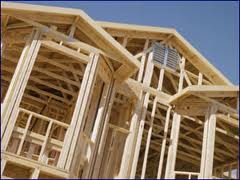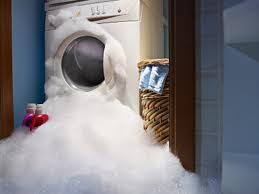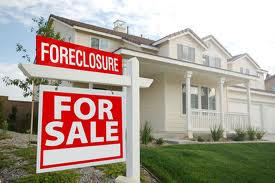Is No-Cost Refinancing Really No Cost?
November 29th, 2011
 Perhaps you’re one of the over 1 million homeowners who might benefit by refinancing at today’s lower mortgage rates. But like many Americans, you may not have the available cash to pay for upfront fees. Maybe you’ve heard about “no-cost” refinancing, but you’re not really sure what it’s all about.
Perhaps you’re one of the over 1 million homeowners who might benefit by refinancing at today’s lower mortgage rates. But like many Americans, you may not have the available cash to pay for upfront fees. Maybe you’ve heard about “no-cost” refinancing, but you’re not really sure what it’s all about.
A no-cost home loan refinance (also called a no-fee refinance or no-cost mortgage refinance) is a loan transaction in which all your settlement or upfront costs are paid for by the lender or broker. These costs include application, title/escrow, credit check, appraisal, loan origination points, and other processing and underwriting fees. Normally, these out-of-pocket expenses amount to more than $1000. So potentially, you can “save” this money.
However, a no-cost refinance is not a true no-cost loan. The bank or lender may take these fees, bundle them together and add them to your total loan amount – increasing how much you have to pay back. Or, the bank or lender will increase your interest rate on a no-cost refinance. Usually, this rate increase is between a quarter and a half of a percentage point higher than if you had paid the fees upfront. Therefore, regardless of whether the lender increases your total loan amount or increases your interest rate, you’ll be paying for these closing costs over the life of the loan.
So, is a no-cost home loan refinance the right choice for you? It may be if:
1. You don’t have the money readily available to pay all the fees upfront.
2. You don’t want to spend your available cash right now due to other factors.
3. You plan to move within a few years.
4. You refinance often to take advantage of lower interest rates.
However, if you plan to stay in your home and not refinance again for five or more years, a no-cost refinance is probably not for you since you’ll likely pay more over time than what the original upfront costs were in the first place.
You should also note that no-cost refinances will vary by lender. Some lenders may pay for all costs, while others may still charge you for certain fees, such as title, escrow, and appraisal fees.
No-cost refinances are neither good nor bad. You just need to determine what your unique financial situation is, what the upfront fees are, and how the increased loan amount and/or interest rate will impact you. Do your research, crunch the numbers and talk to an experienced mortgage professional to determine if a no-cost home loan refinance is the right decision for you.
READ MORE
 So, you’re selling your house, do you have to disclose to buyers that you’ve had problems with the windows leaking? Or, that you live within a mile of railroad tracks? Or, that the sunroom added to the house by the previous homeowner was built without permits? Yes! And here’s why.
So, you’re selling your house, do you have to disclose to buyers that you’ve had problems with the windows leaking? Or, that you live within a mile of railroad tracks? Or, that the sunroom added to the house by the previous homeowner was built without permits? Yes! And here’s why. A recent survey by Move Inc. found that nearly 70% of Americans will base their voting decisions in the next presidential election on how the candidate plans to address the current housing crisis.
A recent survey by Move Inc. found that nearly 70% of Americans will base their voting decisions in the next presidential election on how the candidate plans to address the current housing crisis. When you buy a newly build home, you expect it to be perfect. But according to a recent article in the
When you buy a newly build home, you expect it to be perfect. But according to a recent article in the  Seeing a little water on the floor may be nothing. It’s when you have a lot of water on the floor or water stains on the ceiling that you know you have a real problem. Water damage can lead to rotten floorboards; damaged carpeting, rugs, furniture and possessions; and problems with mold.
Seeing a little water on the floor may be nothing. It’s when you have a lot of water on the floor or water stains on the ceiling that you know you have a real problem. Water damage can lead to rotten floorboards; damaged carpeting, rugs, furniture and possessions; and problems with mold. In an attempt to help “underwater” homeowners (those borrowers whose homes are worth less than the amount mortgaged) refinance, the
In an attempt to help “underwater” homeowners (those borrowers whose homes are worth less than the amount mortgaged) refinance, the  If your home has been on the real estate market for several months, and you haven’t gotten any offers, you may be wondering what to do next.
If your home has been on the real estate market for several months, and you haven’t gotten any offers, you may be wondering what to do next. Are you thinking about buying a foreclosed home (also called a Real Estate Owned – REO)? While there is some potential for great deals, you need to educate yourself on the complexities of buying foreclosed properties. Some factors you should consider:
Are you thinking about buying a foreclosed home (also called a Real Estate Owned – REO)? While there is some potential for great deals, you need to educate yourself on the complexities of buying foreclosed properties. Some factors you should consider: As the weather starts to get cooler, you’ll soon be turning on the heat in your home. By making sure your home is energy efficient now, you’ll save money before winter heating bills start to arrive in your mailbox. Here are seven suggestions to make your home more efficient before temperatures start to drop:
As the weather starts to get cooler, you’ll soon be turning on the heat in your home. By making sure your home is energy efficient now, you’ll save money before winter heating bills start to arrive in your mailbox. Here are seven suggestions to make your home more efficient before temperatures start to drop:





